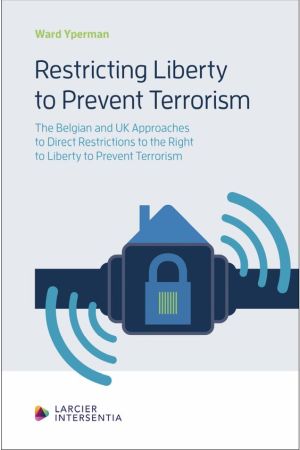
The wave of terrorist attacks that were carried out in Europe during the first two decades of the century has abruptly brought the issue of terrorism to our doorstep. Governments have used different types of measures to attempt to prevent terrorist attacks, the most intrusive of which are measures imposing direct restrictions on the right to liberty.
This book analyses the ways in which Belgium and the UK have employed measures directly restricting the right to liberty in order to prevent terrorism. It opens with an elaborate analysis of the right to liberty in the European Convention of Human rights and the relevant case law of the European Court of Human Rights. Then, the Belgian and UK legislation and case law are discussed. Finally, a comparative analysis of both national jurisdictions is undertaken, which leads to recommendations on how to improve the Belgian legislation in light of the right to liberty as protected by the European Convention of Human Rights.
Ward Yperman studied law at KU Leuven and criminology and criminal justice at the University of Oxford. In 2024, he obtained his PhD in criminal law at the former university. He is currently employed as a legal expert in criminal cases at the Belgian Court of Cassation. He teaches guest lectures on terrorism legislation at several Belgian universities and publishes on counterterrorism and Belgian criminal law in general.